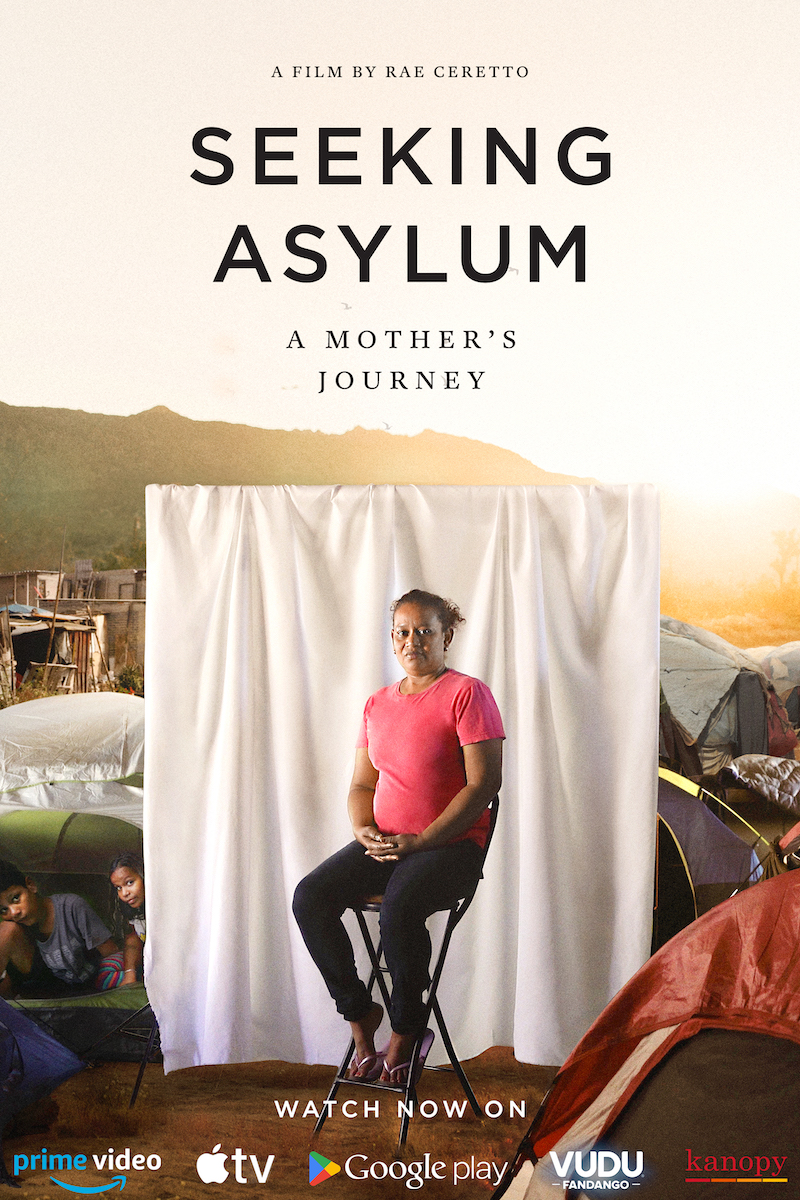Rae Ceretto and Kelly Scott, the documentary filmmakers behind "Seeking Asylum," captured the story of a woman's tireless pursuit to protect herself and her children during one of the most turbulent eras in US history. Through their documentary, they bear witness to the ongoing struggle for safety and security.
"Seeking Asylum" portrays the journey of the Gallardo family as they escape from Honduras, fearing for their lives due to threats from a drug trafficker who plans to burn down their home while they sleep. The documentary sheds light on the struggles and obstacles that migrants encounter while seeking asylum in the United States. Despite a seemingly flawed system, the film chronicles the relentless pursuit of one woman to protect her family and secure a safe haven in the US.
The American Dream is often associated with migration to the United States, but "Seeking Asylum" exposes the ongoing challenges faced by asylum seekers once they arrive. Against the backdrop of America's uncertain times, the film showcases the struggles of asylum seekers and emphasizes the critical role of asylum in fulfilling the American Dream. By highlighting the difficulties of seeking asylum, the documentary aims to raise awareness about the global refugee crisis.
Moreover, the film draws attention to the power vacuum created by the United States' policies in Central America, which has allowed gangs to violently control regions across several countries along the Central American land bridge. The documentary underscores the urgency of addressing these issues and suggests that ignoring them is not an option.
Seeking Asylum Trailer:
https://www.youtube.com/watch?v=8NTOJ4QcmHg

Why did you choose this topic of those seeking Asylum?
Rae Cerrito In 2018, I was working as a photographer with nonprofit organizations at the migrant shelters in Tijuana. This was during a time when the narrative surrounding immigration was becoming increasingly heated. Children were being thrown in cages, border patrol was tear gassing asylum seekers at the Tijuana border, and the rhetoric towards the asylum seekers used words like “rapists and murderers”.
The narrative that I was seeing depicted in the news was not what I was witnessing at the migrant shelters. I was meeting women and children who were fleeing for their lives, escaping certain death from their home countries. I wanted to give these women a platform to tell their stories and find a way to tell this issue from a humanitarian perspective.
Shortly after filming we quickly realized that one of the major issues facing migrants was asylum. We wanted to educate the public about what it actually means to be an asylum seeker in the United States and find a common ground for compassion and understanding.
Kelly Scott: After working on a commercial project together, Rae approached me about an idea that she had for a documentary about asylum seekers. She wanted to make a film that allowed asylum seekers to tell their own stories. Since most people weren’t able to visit the migrant shelters and meet the asylum seekers stuck at the border, she felt we could use the film as a tool to bring that emotional connection to the audience at home. Having joined Rae recently on a trip to the shelters, I quickly agreed that this was a much-needed perspective and signed on to produce the film.
First, we created a short film called We Do Not Live Here which we used as our proof of concept. Then in 2020, we expanded We Do Not Live Here into Seeking Asylum, documenting Kensy’s journey from our first meeting at the migrant camps in 2019 through 2021. We follow her legal struggles in a broken asylum system, navigating a new country without any support during a global pandemic, and the unrealized hope and promise of immigration reform under the Biden Administration.
What are your top five takeaways from your film that the audience may find surprising?
Rae and Kelly: Asylum is legal.
Under U.S. law, it is legal for any person who is at the border or physically present in the United States with a fear of persecution to seek asylum. They can ask for protection either at a port of entry or by crossing the U.S. border without inspection and presenting themselves to a Customs and Border Patrol Agent. Elected officials and media outlets have mischaracterized those who seek asylum as breaking the law or failing to seek protection “the right way” so often that this false narrative has unfortunately become very prevalent. Asylum is a legal right and it is devastating that politicians are making this process impossible to access.
Asylum is a humanitarian issue
We believe that asylum is a humanitarian issue and should be less politicized. Historically, the United States has been able to welcome those fleeing persecution and we need to get back to that place. We hope that more people will start to see all asylum seekers as human beings in need of refuge and not as political scapegoats.
Immigration courts are not independent
Many Americans do not know that the U.S. Immigration Courts are a part of the Department of Justice. Therefore, unlike a typical court, they are a part of the Executive Branch not the Judicial Branch. All immigration judges report directly to the U.S. Attorney General, forcing them to be an extension of the law enforcement policies of each administration. This inherent conflict of interest has been used to manipulate the courts for political purposes and fundamentally compromises their integrity.
It is possible for congress to remove the immigration courts from the Executive Branch; this move is supported by the American Bar Association, the Federal Bar Association, and the American Immigration Lawyers Association. It also has legal precedent: the United States Tax Court was moved from the Executive Branch to the Judicial Branch in 1969. We support moving the Immigration Courts to the Judicial Branch so that they will finally be able to function as a fair and impartial court.
Over 70% of Americans support asylum
A recent survey conducted by the US Immigration Policy Center (USIPC) revealed that nearly three-quarters of Americans (73.4%) either strongly or somewhat agree that the US should provide asylum to people fleeing persecution and/or
violence in their home country. In fact, a majority of Democrats (87%), Republicans (57%), and Independents (74%) support asylum. And while Republicans are less likely to strongly agree (16%), over 4-in-10 Republicans (42%) somewhat agree that the US should offer asylum.
You can help create change in the asylum system
You can head over to our website www.seekingasylumfilm.com to learn more about how you can help asylum seekers. We have partnered with leading non-profit organizations and to create a hub with tangible action items that anyone can access. From signing petitions, to donating, volunteering, and posting on social media - you can even host a screening to engage your community. No matter who you are there is always something you can do!
Screenings:
Since our release in February 2022, we've hosted select screenings and panel discussions across the United States with our nonprofit partners. We have an upcoming private event at Film at Lincoln Center in NYC this April and are looking forward to hosting additional screenings in the upcoming year.
We are encouraging audiences to host their own screenings within their community which they can do by contacting us at: www.seekingsasylumfilm.com/host
You can rent this gripping film: On Amazon, Itunes, Google Play and
- Amazon: https://shorturl.at/oW125
- Itunes Apple: https://shorturl.at/pyCGN
- Google Play: https://shorturl.at/cH234
- Vudu: https://shorturl.at/gitwL

